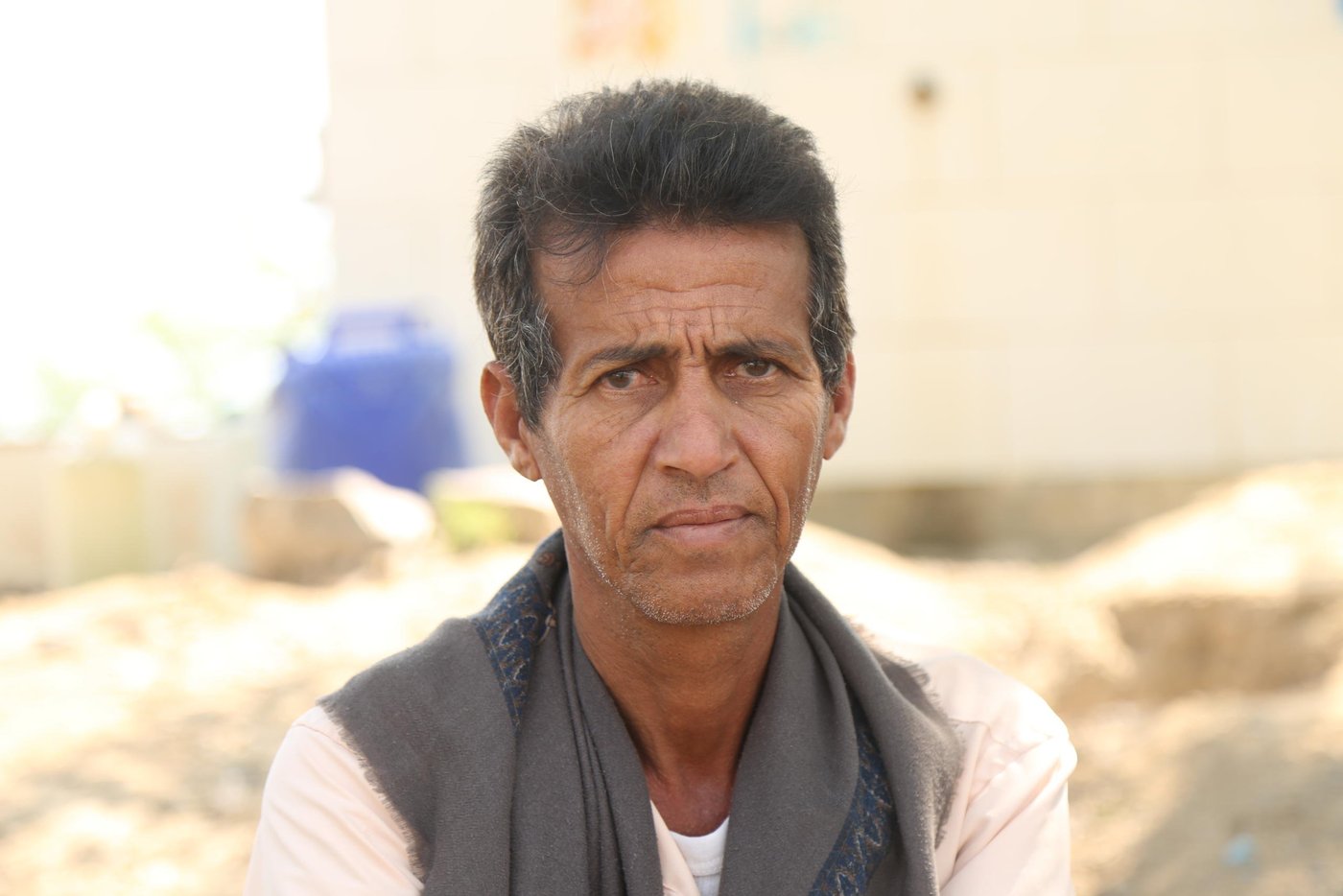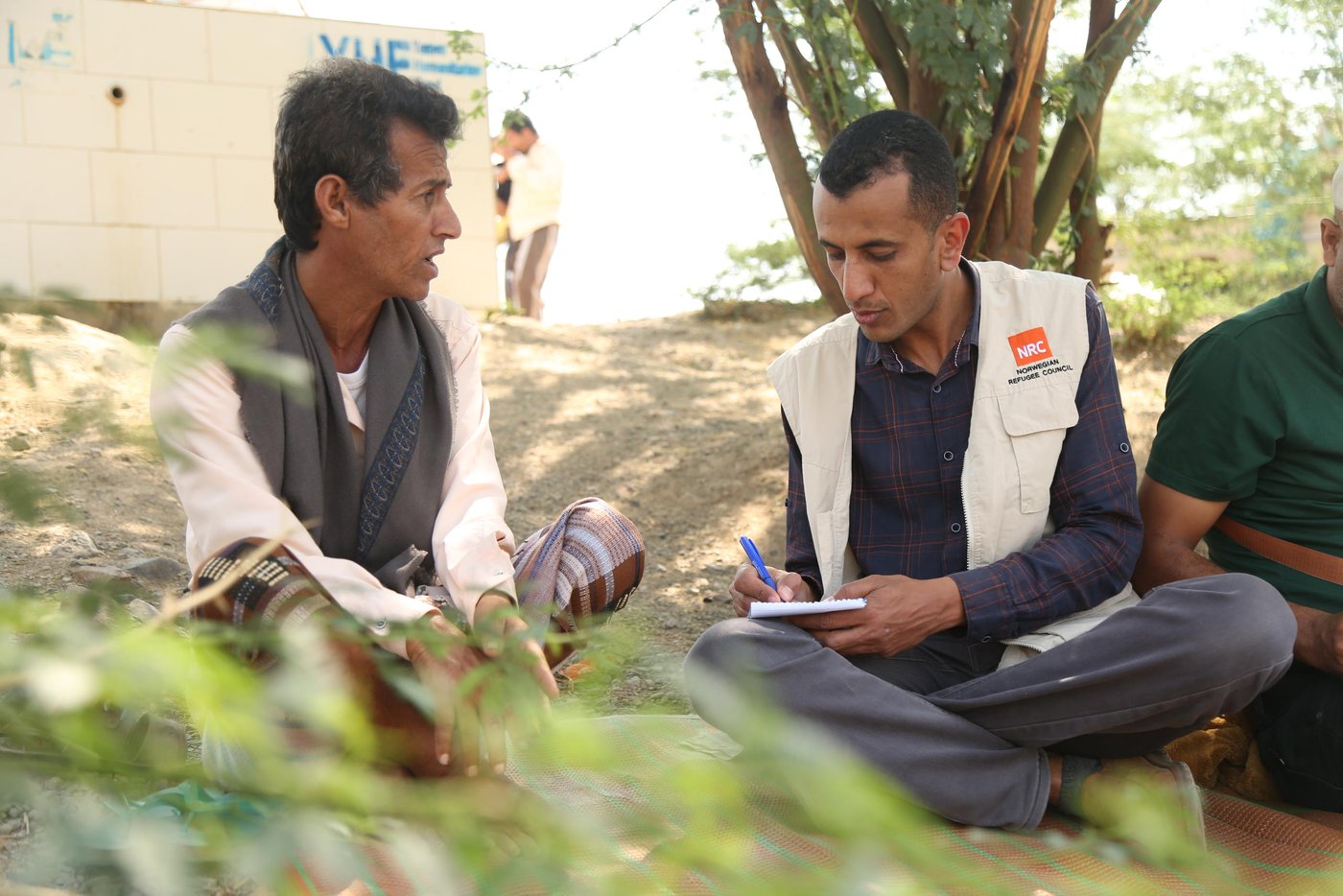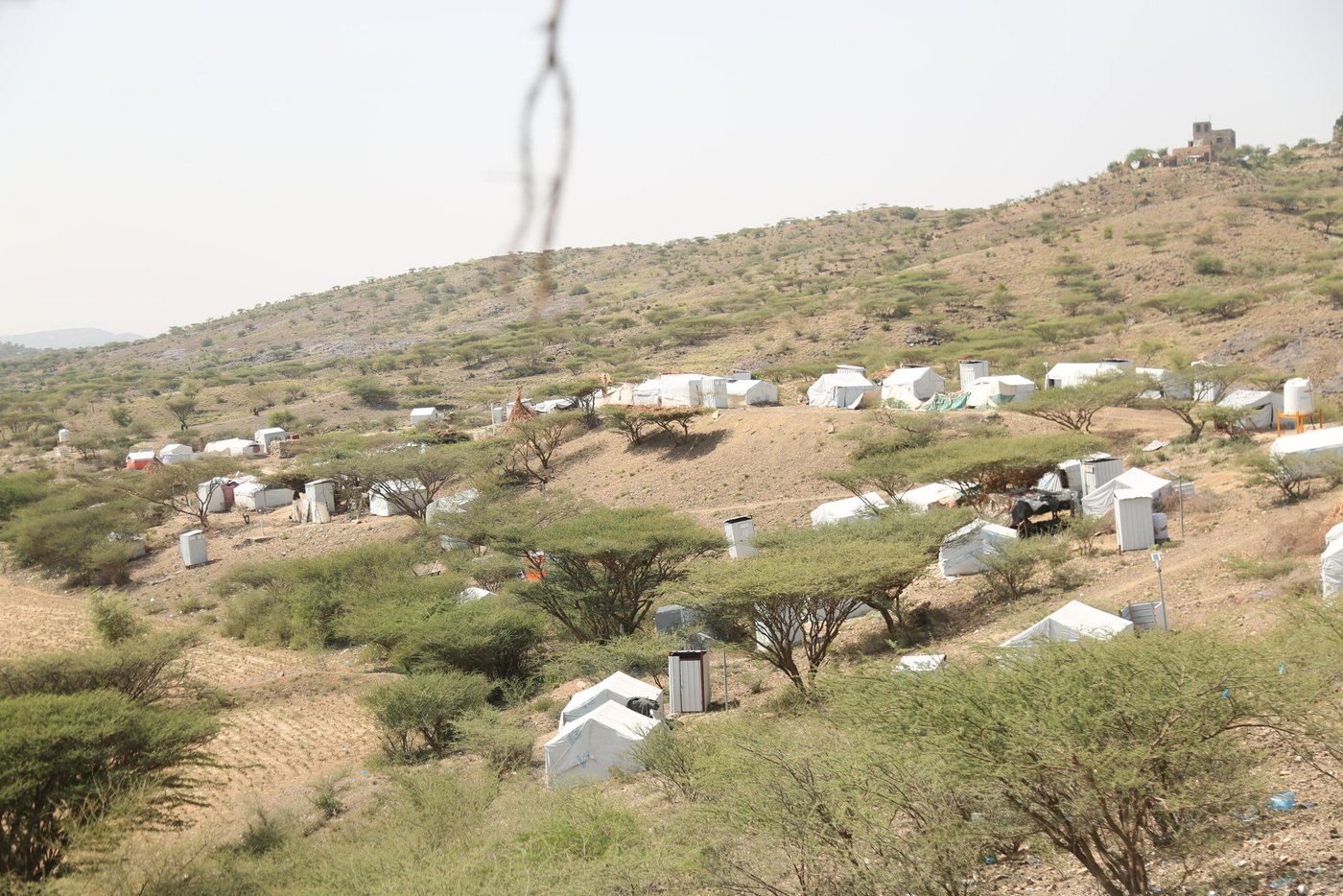Faisal is one of millions of Yemenis who remain reliant on humanitarian aid. Once a school principal, he is still working as a teacher but is unable to support his family on the meagre salary he receives. Here, he shares his story and explains the crucial role humanitarian assistance plays in sustaining displaced families.
“To be a public servant was a lifelong dream of mine, and securing the position of school principal in my village was the proudest moment of my life. The income from my job was enough to provide for my family. As a villager, I also had livestock and farmland, which provided an additional source of income.
“Education was very affordable, and I often paid the fees for children who couldn't afford them. Ever since I started my job in 1995, I dedicated myself to helping the children of my village access education, and to combatting illiteracy. I spent unforgettable days in my village. I fondly remember the mornings when I would start my day with sunrise in the fields, followed by breakfast with my family and then heading to school.

A trail of destruction
“However, in March 2020, the conflict reached our village. It left a trail of destruction, starting with the school and then our homes. I was forced to flee the village with my livestock and neighbours. We walked for six hours until we found a car that brought us to this area.
“Suddenly, I found myself without a job, a home, or a farm, and I had lost neighbours and colleagues. Safety was our top priority. After a few days of sleeping outdoors, we realised that our lives had been irrevocably changed when we heard that our home had been destroyed.

Humanitarian assistance is key
“Although I had no prior experience with humanitarian organisations, aid workers arrived and promised to help us. They provided us shelter, food, clean water, cash assistance, and other forms of aid. While life in this camp is far from what we knew back home, humanitarian assistance has been key to alleviating our suffering.
“I have attempted to return home four times, hoping that the situation had improved. Unfortunately, I was unable to return. Upon reaching my home, I was threatened by gunmen and warned not to go back. The area remains unsafe, and there are landmines on the way. I have decided, therefore, to stay here until the conflict ends.
“I used to help my neighbours in my village, and now I rely on humanitarian organisations for assistance. The meagre salary I receive today, just 80,000 Yemeni Rial [approximately USD 53] a month, is insufficient to cover the basic needs of my family.
“Without humanitarian aid, we would be forced to make difficult choices, such as sending our children to work instead of school, as displaced families in other camps have resorted to doing.”
Sign up to our newsletter to read more stories from around the world.


